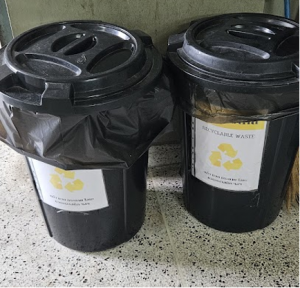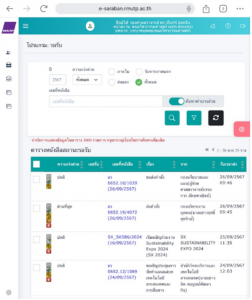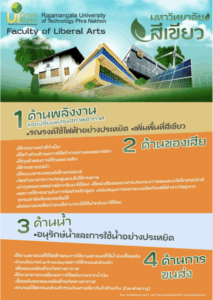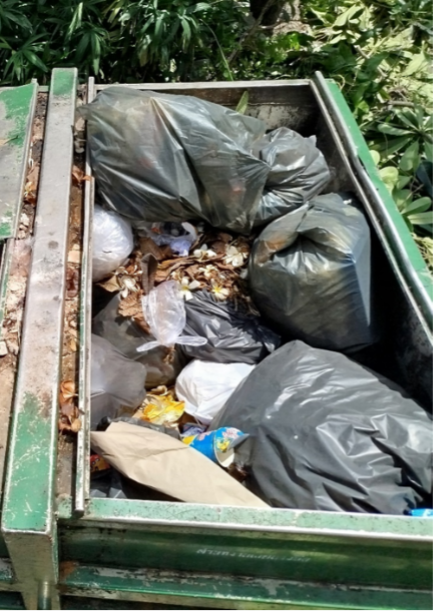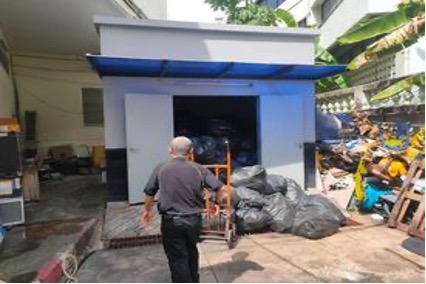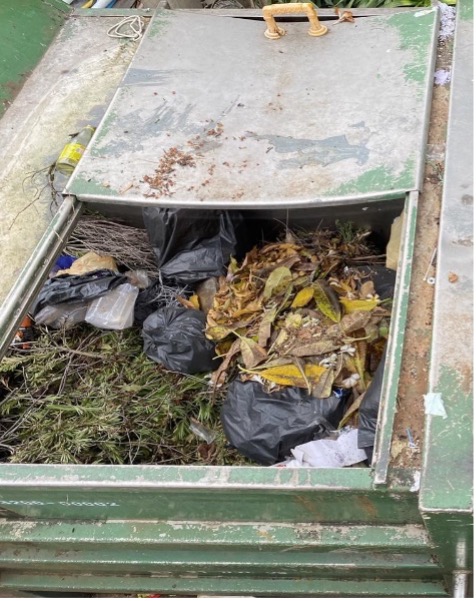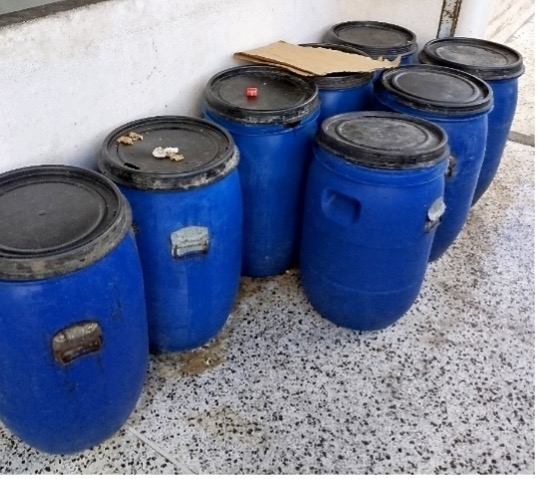Waste
Table of contents
3R (Reduce, Reuse, and Recycle) Program for the University’s Waste
An example of 3R program for the university’s waste
Overview
Our university continues to champion sustainability by actively implementing a comprehensive 3R (Reduce, Reuse, Recycle) program. This initiative aims to cut down on overall waste generation, promote efficient resource use, and embed eco-friendly habits into our campus culture.
Reduce — Minimizing Paper Usage
We’ve fully rolled out an electronic document management system across 100% of departments, replacing traditional paper workflows.
This transition allows staff and students to send, store, and manage documents digitally, reducing paper dependency while streamlining administrative processes.
By going paperless, we are directly shrinking our environmental footprint and inspiring the entire campus to embrace greener practices.
Reuse — Promoting Resource Consciousness
All departments are now actively involved in resource-reuse initiatives (100% coverage).
We encourage double-sided printing (only when necessary), repurposing existing materials, and consistently opting for reusable plastic or cloth bags over single-use ones.
This collective effort strengthens our community’s mindset of resourcefulness and reinforces our long-term commitment to sustainability.
Recycle — Sorting and Diverting Waste
Waste-sorting systems have been launched across campus, with 35% of departments fully implementing them so far.
Staff are encouraged to separate recyclables (like plastic bottles and paper), which are then sold to local recycling companies—supporting the circular economy.
In partnership with municipal recycling facilities, we ensure all collected materials are processed responsibly and efficiently, reducing landfill burden and promoting sustainable waste cycles.
Impact & Ongoing Commitment
Even at this early stage, our 3R efforts have already reduced the amount of paper, plastic, and general waste generated on campus.
We are committed to expanding the reach of recycling systems and strengthening engagement from all departments to achieve full implementation.
Current average 3R implementation rate: Average (100 %+100 %+35 %) = 78 %
We remain dedicated to pushing this number higher each year as part of our long-term environmental stewardship goals.
Additional evidence link (i.e., for videos, more images, or other files that are not included in this file):
https://green.rmutp.ac.th/sustainability-report/
Total volume of paper and plastic produced this year
The table below presents the amount of waste generated on campus this year, focusing on paper waste from office and classroom activities (including a small portion of packaging and hard paper) and plastic waste primarily collected from areas outside the classroom.

This decline highlights the university’s ongoing efforts to enhance waste separation practices, promote digitalization to reduce paper use, and encourage responsible consumption to further minimize non-classroom plastic waste across the campus.
Additional evidence link (i.e., for videos, more images, or other files that are not included in this file):
https://green.rmutp.ac.th/sustainability-report/
Total volume of paper and plastic produced last year
The table below summarizes the amount of waste generated on campus last year compared to this year, highlighting the reduction achieved in both office/classroom-related paper waste (including a small portion of packaging and hard paper) and plastic waste primarily collected from outside the classroom.

Compared to the previous year, the university successfully reduced total waste by 6.5 tons, including a 6-ton decrease in plastic waste and a 0.5-ton decrease in office/classroom paper waste, demonstrating the positive outcomes of campus-wide waste reduction and resource efficiency measures.
Additional evidence link (i.e., for videos, more images, or other files that are not included in this file):
https://green.rmutp.ac.th/sustainability-report/
Program to Reduce the Use of Paper and Plastic on Campus
An example of a department's contribution to promoting the university's Green University Policy.
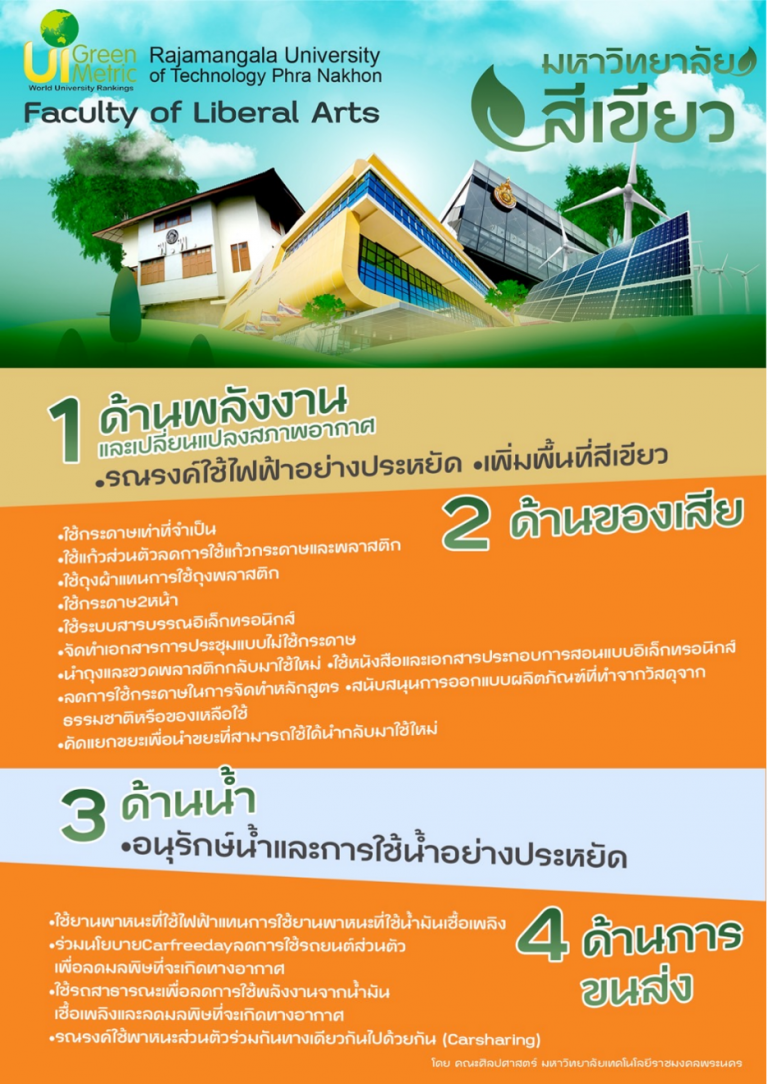
Recognizing the importance of environmental stewardship and its contribution to sustainable development, the university is firmly committed to implementing effective waste management practices. To support this goal, the university has issued a policy encouraging all departments, personnel, and students to adopt the following measures:
- Minimize printed paper usage and print documents only when necessary.
- Promote the use of personal drinking glasses or tumblers to reduce dependence on paper and plastic cups.
- Encourage the use of cloth bags instead of single-use plastic bags.
- Advocate for double-sided printing to conserve paper resources.
- Promote the use of electronic document systems for administrative and academic tasks.
- Encourage the reuse of plastic bags and bottles to extend their life cycle.
- Promote the use of electronic media for textbooks and teaching materials.
- Encourage the use of personal food containers instead of disposable paper or plastic plates.
- Reduce paper consumption in administrative activities and curriculum development processes.
- Support the design and use of products made from natural or recycled materials.
- Implement waste sorting policies to facilitate the recycling of reusable materials.
Additional evidence link (i.e., for videos, more images, or other files that are not included in this file):
https://green.rmutp.ac.th/sustainability-report/
Total volume of Organic Waste produced this year
Organic waste (Rajamangala University of Technology Phra Nakhon)
| Types of Waste | North Bangkok Campus | Thewet Campus | Chotiwet Campus | Phra Nakhon Commercial Campus | Chom Thong Campus | This year amount(tons) | Last year amount(tons) | Reduced |
| – food waste from cafeteria | 25.5 | 8.9 | – | 31.2 | – | 65.6 | 65.8 | 0.2 |
| – study activities, etc. | 3.85 | 2.4 | 10.9 | 10 | 6 | 33.15 | 33.19 | 0.04 |
| Total | 29.35 | 11.3 | 10.9 | 41.2 | 6 | 98.75 | 98.99 | 0.24 |
The table shows the total volume of organic waste generated across the university’s five campuses during this year, amounting to 98.75 tons. The Phra Nakhon Commercial Campus produced the highest amount at 41.2 tons, followed by the North Bangkok Campus with 29.35 tons, while the other campuses contributed smaller portions.
This organic waste primarily consisted of food waste from cafeterias (65.6 tons) and organic waste from study activities and other operations (33.15 tons). Compared to the previous year’s total of 98.99 tons, this represents a slight overall reduction of 0.24 tons, reflecting the university’s continued efforts to improve waste separation and minimize organic waste generation.
Additional evidence link (i.e., for videos, more images, or other files that are not included in this file):
https://green.rmutp.ac.th/sustainability-report/
Total volume of Organic Waste produced last year
| Types of Waste | North Bangkok Campus | Thewet Campus | Chotiwet Campus | Phra Nakhon Commercial Campus | Chom Thong Campus | Amount(tons) (tons) |
| – food waste from cafeteria | 24.0 | 9.12 | – | 32.68 | – | 65.8 |
| – study activities, etc. | 3.62 | 2.45 | 11.2 | 9.8 | 6.12 | 33.19 |
| Total | 27.62 | 11.57 | 11.2 | 42.8 | 6.12 | 98.99 |
The table above presents the total amount of organic waste generated across all five campuses of Rajamangala University of Technology Phra Nakhon during the previous year, including waste produced by staff and students. The university generated a total of 98.99 tons of organic waste, with the Phra Nakhon Commercial Campus contributing the most at 42.48 tons, followed by the North Bangkok Campus with 27.62 tons. Differences in waste generation levels among campuses are influenced by factors such as campus size, student and staff population, and available facilities.
The data also distinguishes between two primary categories of organic waste: food waste from cafeteria operations and waste from study activities and other academic processes. Food waste made up the largest portion at 65.8 tons, while waste from study activities contributed to 33.19 tons. Within this breakdown, the Phra Nakhon Commercial Campus reported the highest food waste at 32.68 tons, followed by the North Bangkok Campus with 24.0 tons. Conversely, the Chotiwet Campus produced the most study-activity-related organic waste at 11.2 tons, despite having no cafeteria.
Additional evidence link (i.e., for videos, more images, or other files that are not included in this file):
https://green.rmutp.ac.th/sustainability-report/
The Total Amount of Organic Waste Treated
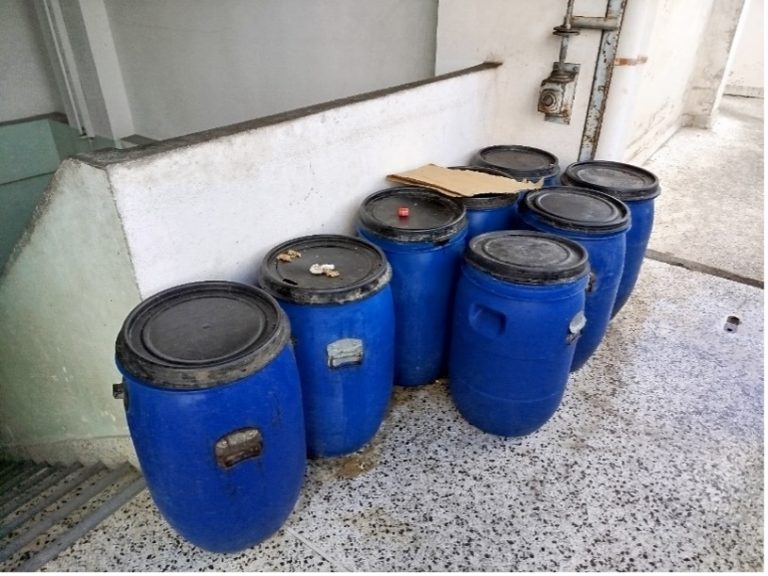
| Types of Waste | Amount (tons) | |
| Total | Recycled | |
| – food waste from cafeteria | 65.6 | 25.5 (North Bangkok Campus) |
| – study activities, etc. | 31.15 | – |
| Total organic waste | 98.75 | 25.5 |
Rajamangala University of Technology Phra Nakhon recognizes the significant environmental impacts associated with organic waste—particularly discarded food and plant-based materials—generated across its campuses. To address this, the university is committed to implementing systematic measures and sustainable practices for the effective treatment and reduction of organic waste.
According to the table, the university produced a total of 98.75 tons of organic waste this year, consisting of 65.6 tons of food waste from cafeterias and 33.15 tons from study activities and other operations. Notably, 25.5 tons of food waste from the North Bangkok Campus are collected and repurposed as animal feed, representing approximately 25.8% of all organic waste generated across the university.
This initiative not only reduces the environmental burden of organic waste but also demonstrates the university’s ongoing commitment to sustainable resource management and circular waste practices.
Additional evidence link (i.e., for videos, more images, or other files that are not included in this file):
https://green.rmutp.ac.th/sustainability-report/
Organic Waste Treatment
As outlined in Section 3.7, Rajamangala University of Technology Phra Nakhon recognizes the environmental impacts of organic waste generated on each campus and within the surrounding community. To address this, the North Bangkok Campus has implemented a program that allows food stall operators and local farmers to collect leftover food for use as animal feed. Through this initiative, approximately 25.8% of the total organic waste produced across all campuses is repurposed, rather than being disposed of through open dumping.
This practice not only reduces the volume of organic waste sent to landfills but also supports local agricultural activities, demonstrating the university’s strong commitment to sustainable and circular waste management strategies.
Additional evidence link (i.e., for videos, more images, or other files that are not included in this file):
https://green.rmutp.ac.th/sustainability-report/


